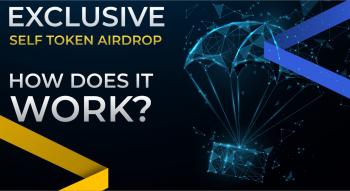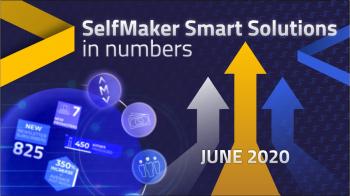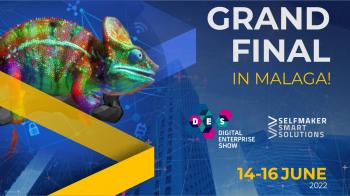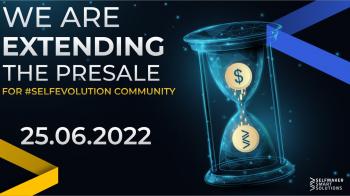Automation in trade and services
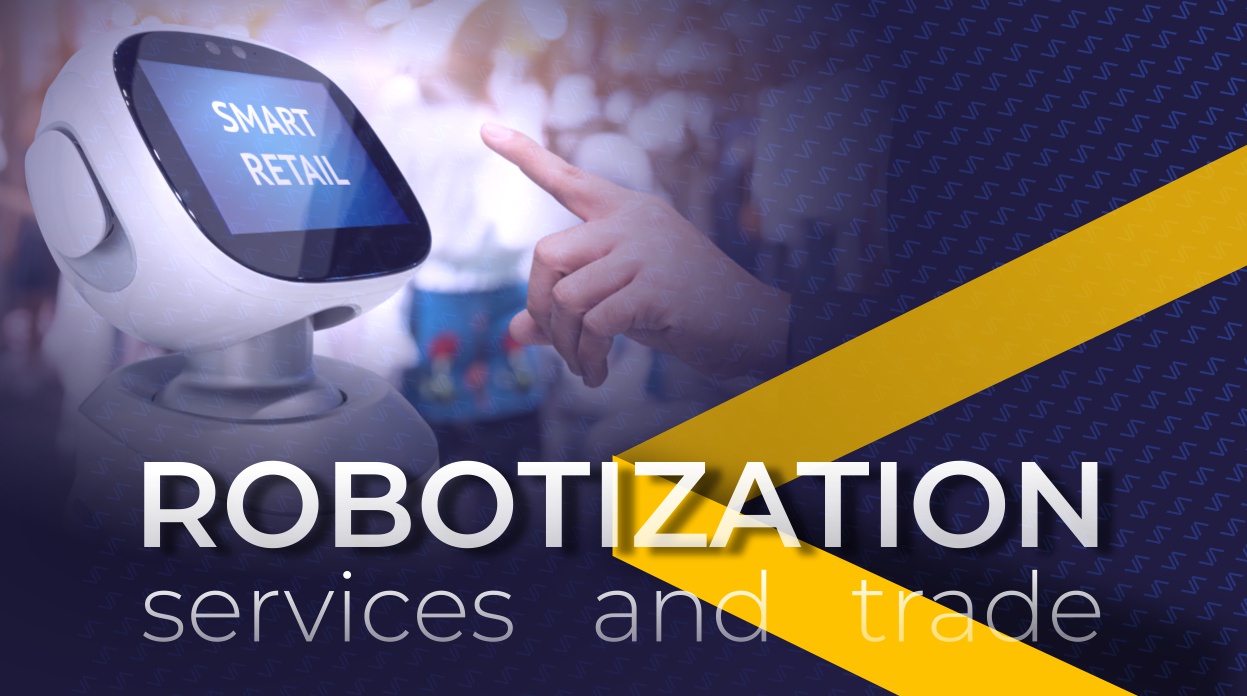
December 4, 2020 | #selfevolution academy
Some time ago, we raised the topic of industrial process robotization (CLICK HERE), which is an important component of technological development, but the automation is progressing and its impact is no longer just in the industrial sector. Let's take a look at services and trade. What impact can technology have on the development of these industries?
Change in customer expectations is the driving force behind automation
Heavy industry is the foundation, thanks to it we can benefit from all the advantages of modern technology and more. But it is the service and trade that drives the entire machine. It is these sectors that focus on direct contact with the end user, where trends and demand are created. Thanks to the opinions and expectations of customers, the directions of development and changes in all existing industries are determined. Very often emotions and psychology are involved here. It may therefore be surprising that even in such peculiar parts of the economy there is a revolution in process automation.
The answer is the changes that take place in the awareness and expectations of customers. Less and less importance is being attached to human interaction, and more and more to the efficiency, speed, and smoothness of everything we do. The recipient expects the service to be provided in a way that requires the least amount of time, while at the same time being performed as best as possible. Modernity gets used to a comfortable lifestyle and this process will continue, so in order to remain competitive, it is not necessary to resist the current but to flow with it, gradually investing in improving and automating the services provided.
The next trade revolution
The origin of trade cannot be determined. It exists as long as beings who think and have needs. Behaviour that can be described as “trade” can already be seen even in animals. Throughout the years it has gone through countless revolutions, so the next one, at the threshold of which we are standing, is the natural sequence of things. Trade automation manifests itself in several areas:
- order processing and customer service
- warehousing and logistics
- vending and self-service stores
- automatic shop assistants
First of these points should not surprise anyone. The e-commerce industry is growing fast, shops automatically process orders, accept payments, send all necessary emails. Customer service is based on automated problem-solving procedures, only ultimately leading to direct confrontation with a living person. This is linked to the second point, as fully automated logistics centres are increasingly being set up, operated by robots storing, packing and handing over parcels for dispatch. The American giant Amazon even performs trials with pre-programmed drones delivering packages to its customers at very high speed. If all these processes could be combined, a completely autonomous mail order shop would be created! Vending - a popular vending machines, has been known for years, however, we have been observing its boom for a while now. They're becoming more and more useful, offering an ever-increasing range of goods, from jewellery to the whole cars! The first experimental take'n'go stores (CLICK HERE) are also opening (even in Poland!), where the whole payment process takes place automatically and instantly, without the need for cash desk service.
As if that wasn't enough, WalMart stores have recently seen robots wandering around the shop floor looking for missing goods, mislabelling, products with expiration dates.
New approach to services
The service sector is also on the verge of revolution. No wonder, the investment in automation pays for itself very quickly and then brings big profits and many other additional benefits. Professionals such as telemarketers, receptionists, salesmen or librarians should already start thinking about additional education and broadening their competences, because they may be the ones who are facing a complete change of positions or the whole industry in which they work. All this through the dynamic development of artificial intelligence algorithms, allowing for the faithful reproduction of many human behaviours, especially those that are routine and repetitive. However, this is not a reason to worry about a significant reduction in the number of jobs, as they will be replaced by new, as yet unknown professions, requiring a greater share of typically "human" characteristics.
According to analysts, the first fire of automation will go to the financial and IT sectors. It is already these industries that are spending the most money on RPA (Robotic Process Automation). In this field of robotization, all matters related to customer service, data management, and reporting can be subject to automation. Virtual service advisors, financial and stock market analysts are created, who, on the basis of historical data and machine learning algorithms, can perform the tasks entrusted to them with great efficiency.
The process of service automation is progressing on many fronts. What is interesting is the fact that even such a complex field as medicine already uses robots. And that's thanks to Intuitive Surgical and their surgical robot Da Vinci. However, experience has shown that this robot, created to perform cardiac surgeries, is not yet fully up to the task and for this moment it is used in gynaecology and urology, which in any case deserves considerable respect.
Work smarter, not harder
The above sentence is a universal truth, applicable in practically every area of life. This is also the case in the services and trade sectors. The pursuit of development is a fundamental objective of every individual, and in this case, development means achieving ever better results while reducing financial, time and human resources. Therefore, if technology gives you the opportunity, let's use it without hesitation, passing on everything possible to advanced automation, thus using much more valuable human resources for work that requires features that no robot will ever get: creativity, thinking outside the box and perhaps above all emotionality.

